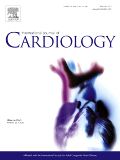
International Journal of Cardiology
Scope & Guideline
Advancing Cardiovascular Knowledge for a Healthier Tomorrow
Introduction
Aims and Scopes
- Cardiovascular Genetics and Genomics:
Research exploring the genetic underpinnings of cardiovascular diseases, including familial syndromes and gene mutations associated with conditions like hypertrophic cardiomyopathy. - Innovative Imaging Techniques:
Utilization of advanced imaging modalities such as cardiac MRI, echocardiography, and CT angiography to assess cardiac function, structure, and disease progression. - Heart Failure Management:
Studies focusing on the diagnosis, treatment, and management strategies for various forms of heart failure, including preserved and reduced ejection fraction. - Percutaneous Interventions and Surgical Techniques:
Research on the efficacy and outcomes of minimally invasive techniques such as TAVR (transcatheter aortic valve replacement) and PCI (percutaneous coronary intervention) in treating cardiac conditions. - Preventive Cardiology and Risk Assessment:
Investigations into the prevention of cardiovascular diseases through lifestyle interventions, risk factor management, and the application of predictive models. - Pharmacotherapy and Drug Development:
Clinical trials and studies evaluating the effectiveness of new and existing pharmacological therapies for cardiovascular diseases, including antithrombotics and heart failure medications.
Trending and Emerging
- Digital Health and Telemedicine:
There is increasing interest in the role of digital health technologies and telemedicine in managing cardiovascular diseases, particularly post-COVID-19, highlighting the shift towards remote monitoring and care. - Machine Learning and Artificial Intelligence:
The application of machine learning and AI in predicting cardiovascular outcomes and personalizing treatment plans is trending, showcasing the integration of technology in cardiology. - Personalized and Precision Medicine:
Research focused on tailoring treatments based on individual genetic, phenotypic, and lifestyle characteristics is on the rise, reflecting a move towards more individualized approaches in cardiovascular care. - Inflammation and Cardiovascular Disease:
Emerging studies are increasingly recognizing the role of inflammatory processes in cardiovascular diseases, leading to research that explores new therapeutic targets. - Cardio-Oncology:
As more cancer treatments have cardiovascular implications, the intersection of cardiology and oncology is gaining prominence, with a focus on managing cardiovascular risks in cancer patients.
Declining or Waning
- Traditional Risk Factor Studies:
Research centered on conventional cardiovascular risk factors has decreased as the field shifts towards more nuanced genetic, molecular, and lifestyle factors influencing cardiovascular health. - Basic Science Research:
There is a noticeable decline in the publication of purely basic science studies, with a growing emphasis on translational research that connects laboratory findings to clinical applications. - Epidemiological Studies without Intervention:
The focus on observational epidemiological studies that do not propose interventions or solutions is waning, as the journal prioritizes studies that offer actionable insights for clinical practice.
Similar Journals
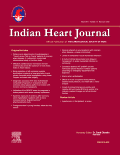
Indian Heart Journal
Championing Open Access to Cardiovascular InsightsIndian Heart Journal, published by Elsevier, is a distinguished peer-reviewed journal dedicated to the field of cardiology and cardiovascular medicine. Founded in 1961, this journal has been a pivotal resource for researchers, healthcare professionals, and students, providing a platform for innovative studies and insights into heart health. The journal transitioned to an Open Access model in 2013, ensuring widespread dissemination of vital research findings to enhance global understanding of cardiovascular diseases. Ranked in the Q3 category for Cardiology and Cardiovascular Medicine in 2023, it holds a reputable position in the medical community, with a Scopus rank of #222 out of 387 journals in the same field, placing it in the 42nd percentile. The Indian Heart Journal strives to foster advances in clinical practice and research while addressing the unique cardiac health challenges faced in India and beyond.
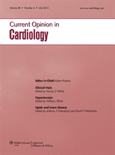
CURRENT OPINION IN CARDIOLOGY
Exploring the forefront of cardiovascular innovation.CURRENT OPINION IN CARDIOLOGY, published by LIPPINCOTT WILLIAMS & WILKINS, is an esteemed journal in the field of cardiology that has been serving the academic community since 1988. With a robust focus on the latest developments and emerging trends in cardiovascular medicine, this journal aims to bridge the gap between clinical practice and research, offering critical insights and expert commentary. The journal is recognized in the medical community, achieving a 2023 Scopus rank of #148 out of 387 in its category, placing it in the 61st percentile. Although it operates under a subscription-based model, CURRENT OPINION IN CARDIOLOGY remains an essential resource for researchers, practitioners, and students seeking cutting-edge knowledge and advancements in cardiology. As a Q2 journal in the field, it continues to foster dialogue and provide a platform for disseminating impactful cardiovascular research, ultimately contributing to improved patient outcomes and informed clinical decisions.
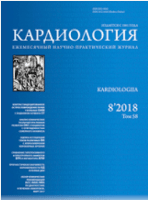
KARDIOLOGIYA
Bridging Research and Practice in CardiologyKARDIOLOGIYA is a renowned academic journal in the field of cardiology, published by the Russian Heart Failure Society. Since its inception in 1961, this journal has been dedicated to disseminating cutting-edge research in cardiovascular medicine, contributing to the global understanding of heart-related diseases and their management. With a significant publication history that spans over six decades, KARDIOLOGIYA provides a platform for both established researchers and emerging scholars to publish their findings. Despite its current Q4 category ranking in the 2023 Cardiology and Cardiovascular Medicine category, the journal plays a crucial role in promoting regional insights and advancements in cardiology, while striving towards higher visibility and impact within the academic community. While not an open-access journal, the journal is accessible to institutions and professionals in the Russian Federation and beyond, fostering collaboration and knowledge sharing among healthcare professionals. With a Scopus rank of #259 among 387 journals, it is well-positioned to enhance discourse in the field and support the development of innovative approaches to cardiovascular care.

Journal fur Kardiologie
Transforming Cardiology Through Rigorous Research.The Journal fur Kardiologie, published by KRAUSE & PACHERNEGG GMBH, is a pivotal resource in the field of Cardiology and Cardiovascular Medicine. With an ISSN of 1024-0098 and an E-ISSN of 1680-936X, this journal has played a significant role in disseminating valuable research and clinical studies from 1998 until its coverage discontinuation in Scopus in 2017. Despite its Scopus rank being relatively low at #316/324 in its category, it continues to serve as a platform for emerging cardiology research. The journal’s scope encompasses various aspects of cardiovascular health, providing insights that are crucial for researchers, professionals, and students alike seeking to advance their knowledge and practice in cardiology. While the journal is not open access, its contributions to the field are essential for those looking to stay informed about the latest developments in cardiovascular medicine.
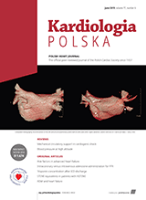
Kardiologia Polska
Enhancing Cardiovascular Care with Every PublicationKardiologia Polska, the esteemed journal of the Polish Cardiac Society, has established itself as a vital resource in the field of cardiology and cardiovascular medicine since its inception in 1954. With an ISSN of 0022-9032 and an E-ISSN of 1897-4279, this journal serves as a platform for groundbreaking research and scholarly articles that contribute to the advancement of heart health. Although currently not an open access journal, it remains an essential reference for practitioners and researchers seeking to stay abreast of the latest developments in cardiovascular science. The journal reflects its scholarly depth through a Category Quartile of Q3 and a commendable Scopus ranking at the 48th percentile in its field. Published primarily in Poland, it caters to a global audience eager to explore comprehensive studies spanning clinical cardiology, innovative therapeutic approaches, and emerging cardiovascular trends. Join a thriving academic community by engaging with the invaluable insights and research contributions found within the pages of Kardiologia Polska.

Netherlands Heart Journal
Leading the Way in Cardiovascular Research and PracticeNetherlands Heart Journal is a premier academic publication dedicated to advancing knowledge in the field of cardiology and cardiovascular medicine. Published by BOHN STAFLEU VAN LOGHUM BV, this journal has established itself as a critical platform for researchers, professionals, and students seeking to explore groundbreaking findings and innovative practices in cardiovascular health. With an ISSN of 1568-5888 and E-ISSN 1876-6250, the journal boasts a respectable Q2 ranking in the Cardiology and Cardiovascular Medicine category, placing it in the top half of its field according to the 2023 quartiles. The Scopus ranking places it 130th out of 387 in the relevant category, indicating a commendable percentile rank of 66th, which attests to its influence and quality of published research. Spanning from 2005 to 2024, the journal endeavors to include a diverse array of topics, encompassing clinical practice, technological innovations, and public health considerations related to cardiovascular diseases. Researchers and practitioners are encouraged to engage with the journal's robust content, contributing to and benefiting from the collaborative effort to enhance cardiovascular health worldwide.

Pakistan Heart Journal
Exploring the Frontiers of Heart Health Research.Pakistan Heart Journal, with the ISSN 0048-2706 and E-ISSN 2227-9199, is a premier publication by the Pakistan Cardiac Society, dedicated to advancing the field of cardiology and cardiovascular medicine. Established as an Open Access journal since 2011, it provides a valuable platform for researchers and clinicians to disseminate innovative findings and insights within this critical area of health. Based in Karachi, Pakistan, at the National Institute of Cardiovascular Diseases, this journal aims to foster an enriched understanding of cardiovascular health by publishing rigorous research, case studies, and review articles. Despite its current categorization as Q4 in the latest 2023 quartiles and a rank of 357/387 in the Scopus database, it plays a vital role in the academic community, encouraging collaborative efforts and dialogue among professionals. The journal aspires to converge diverse perspectives and innovations in cardiology from 2019 to 2024, thereby enhancing the quality and scope of cardiovascular research in the region and beyond.

CANADIAN JOURNAL OF CARDIOLOGY
Elevating Standards in Cardiovascular ResearchCanadian Journal of Cardiology (ISSN: 0828-282X, E-ISSN: 1916-7075), published by Elsevier Science Inc, serves as a vital platform for disseminating high-quality research in the dynamic field of cardiology and cardiovascular medicine. Since its inception in 1985, this journal has established itself as a leader in the field, currently holding a prestigious Q1 ranking in Cardiology, indicating its significant impact and contribution to medical science. With a Scopus rank of #50 out of 387 in its category and placing in the 87th percentile, the journal showcases rigorous peer-reviewed articles that advance knowledge and practice in cardiology. Although the journal is not open access, it provides valuable insights and research findings that cater to clinicians, researchers, and students who are committed to improving cardiovascular health. As we approach the convergence of years to 2024, the Canadian Journal of Cardiology continues to strive for excellence, facilitating a discourse vital for both academic and clinical advancements in cardiology.
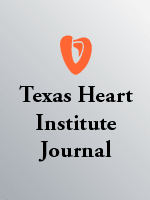
TEXAS HEART INSTITUTE JOURNAL
Exploring Innovations in Heart Care and Research.TEXAS HEART INSTITUTE JOURNAL, published by the renowned Texas Heart Institute, stands as a pivotal resource in the field of cardiology and cardiovascular medicine. With a history spanning over four decades since its establishment in 1982, this journal addresses a wide range of topics within its scope, including clinical studies, innovative treatments, and groundbreaking research in heart health. Despite its Q3 ranking in both Cardiology and Cardiovascular Medicine, the journal is committed to fostering advancement in medical knowledge and practice, providing an essential platform for healthcare professionals and researchers alike. While currently lacking open access, the journal is recognized for its contributions to the field, aiming to illuminate critical healthcare discussions and promote the exchange of ideas. For those interested in staying at the forefront of cardiovascular research, TEXAS HEART INSTITUTE JOURNAL offers invaluable insights and the latest developments shaping the future of heart care.
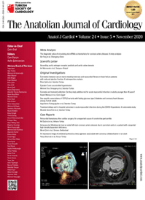
Anatolian Journal of Cardiology
Fostering Cardiovascular Excellence Since 2001.The Anatolian Journal of Cardiology, published by KARE PUBL, stands as a vital resource in the field of Cardiology and Cardiovascular Medicine. With an ISSN of 2149-2263 and E-ISSN 2149-2271, this Open Access journal has been fostering the dissemination of critical research since 2001, ensuring that high-quality content is freely available to a global audience. Based in Turkey, the journal aims to bridge gaps in cardiological knowledge through rigorous peer-reviewed articles that span a wide range of topics, from innovative clinical practices to groundbreaking research findings. While its current ranking places it in the Q3 category of cardiology journals, the Anatolian Journal of Cardiology continues to strive towards enhancing its impact, currently holding a Scopus rank of 236 out of 387. Researchers, practitioners, and students alike will find this journal an essential platform for keeping abreast of the latest developments in cardiovascular health.